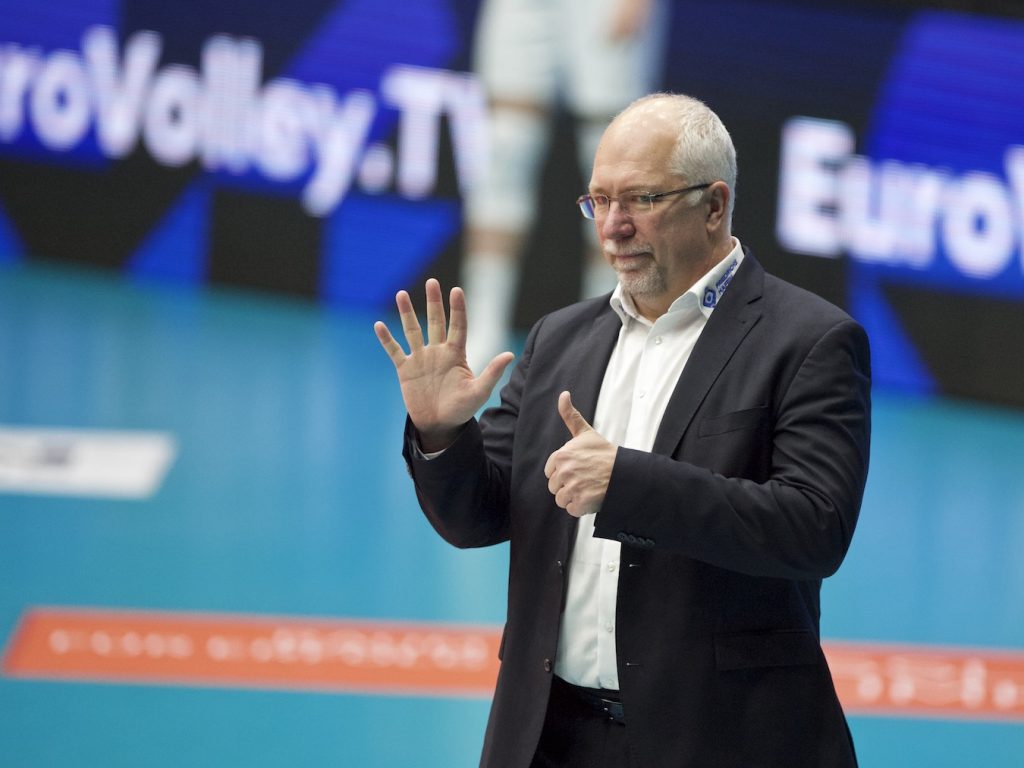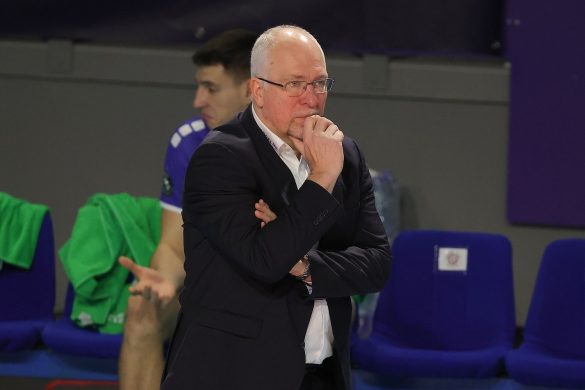
Any coach who has coached for any length of time has had players coming from other teams. And players coming from other teams learnt volleyball in different systems and philosophies. It always takes some time to work out exactly what it is that a player understands about the game to either build upon or break down, as the case may be. It is always interesting for me learning what other coaches’ systems are, and systems basically come down to rules for playing the game. Rules such as who should take which ball, when. Or who decides which situation, when. The most common rules of course are all the things that middles are not allowed to do. No passing free balls, no setting, just get out of the way and let the volleyball players do all the volleyball. I even once had a middle blocker who was so scarred and / or indoctrinated that when a free ball was on its way, he moved towards the net so he could not even accidently play the ball. This was a professional player, for the record. There was another player who insisted that it was always better for the libero to take the first ball, even if there were better positioned players. Yes, he was a libero. No, those two players didn’t play together. Perhaps they should have.
I recently shared an article about attack evenness. The basic finding of the study reported in the article is that sharing the offence among all five attackers is more effective than focussing the offence through one or two attackers. The original article was made on the German men’s Bundesliga but the follow up article studied 139 different leagues and competitions from around the world, at different age levels and both men and women. The initial result (greater team play = more winning) was repeated in 136 of those competitions. There followed a discussion in which it was suggested that it is logical to set the best attacker as much as possible. There is a certain amount of logic to that argument. Just as there is an argument for the libero to play every first ball. Or for the setter to take every second ball. The player with the highest skill level playing more balls in that skill is the essence of specialisation and how we structure the game. But in my mind, there are fundamental flaws in taking this philosophy to its conclusion.
The first reason is the human reason. Team play requires individuals to put team success ahead of personal success. To do that, those individuals have to feel they are a part of the process, and not just any part, but an integral part. Only then will they be fully engaged in the areas in which they are responsible. If they feel excluded from part of game, they will not be completely engaged in other parts. This was a huge part of the work of Phil Jackson with his (and Tex’s) famous Triangle. And it is an important consideration for middle blockers who ‘play’ the least but must be fully engaged in order to block well
Even putting the human component aside (which you can never do) there are practical flaws in this level of specialisation. In the example of setting the best attacker, no matter who the number one attacker is, they can’t hit every ball. In the libero example, they are not always on the court. At some point in the match someone else is going to have to be relied upon to make a key play. As a coach developing systems and making rules I have a clear choice. Do I put all my eggs in one basket and make a hard and fast rule (i.e. gamble that my key player will make so many plays that I never get in a situation when someone else must make a key play) or do I make fewer rules that prepare everyone to be ready to make a play when it comes (i.e. gamble that my key player/s will have slightly fewer contacts, but that will be outweighed by better performances from everyone else).
For me the choice is clear. The coach can make all the plans they want, but the game follows its own rules.
About Mark Lebedew:

Mark Lebedew authors the At Home on the Court Blog. He coaches professionally in Poland, from january 2021 with eWinner Gwardia Wrocław, in season 2019/20 with Aluron Virtu CMC Warta Zawiercie and in the period 2015-2018 with KS Jastrzębski Węgiel. That follows five seasons Germany where his Berlin Recycling Volleys won three straight league titles and a CEV Champions League bronze medal. He has prior professional experience in Belgium and Italy. Mark was also Head Coach for the Australian Men’s National Team. From 2021/2022 until the end of the 2023/2024 season he was at the helm of VfB Friedrichshafen, while in 2022 he led the Slovenian national team during the Volleyball Nations League. In the 2024/2025 season, Mark Lebedew takes charge of the Netherlands’ team, Nova Tech Lycurgus. Starting from the 2025/2026 club season, he took charge of the Polish team PSG Stal Nysa S.A.
Mark partnered with his brother and father to translate and publish “My Profession: The Game“, the last book by legendary Russian coach, Vyacheslav Platonov.
With John Forman, he is behind the Volleyball Coaching Wizards project (link http://volleyballcoachingwizards.com/) which identifies great coaches from all levels, making their experience, insights, and expertise available to people all over the world. The project has produced multiple books, a in e-book format available here ( link to http://bit.ly/34yakou ) or at Amazon here (link https://amzn.to/2JRqTE6).
In 2021, he launched project Webinars and Presentations on Demand. If you are interested for coaching presentations and webinars available on demand, click here.